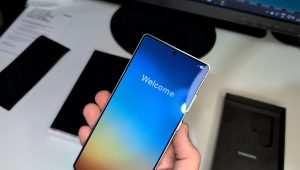Check your email inbox. You just received a message from Microsoft requesting that you click on a link to access some shared onedrive files or to reset a password…but is it really from them?
According to a new report from check point software cybercriminals are increasingly impersonating brands in attempts to steal sensitive data, payment details or other personal information.
The report reveals that Microsoft remained the number one most imitated brand in all phishing attacks globally in the 3rd quarter of this year followed by Amazon.
Top 10 most Imitated Brands in Q3 2021
- Microsoft (29% of all phishing attacks globally)
- Amazon (13%)
- DHL (9%)
- BestBuy (8%)
- Google (6%)
- WhatsApp (3%)
- Netflix (2.6%)
- LinkedIn (2.5%)
- PayPal (2.3%)
- Facebook (2.2%)
To avoid being tricked by cybercriminals posing as big brands;
- Be skeptical. Don’t trust any source that requests sensitive or personal information via email.
- Look for copy errors. Misspelling and grammatical errors are often clues you’re being phished.
- Never trust alarming messages. Watch for overly urgent subject lines and language like “Update your Information Now.” Emails saying your account has been compromised a signals for a phishing attack.
- Study the domain. If the @domain.com part of the email doesn’t exactly match the corporate web site URL, it’s a red flag.
- Avoid attachments. Do not open attachments in these suspicious or strange emails — especially Word, Excel, PowerPoint or PDF attachments.


